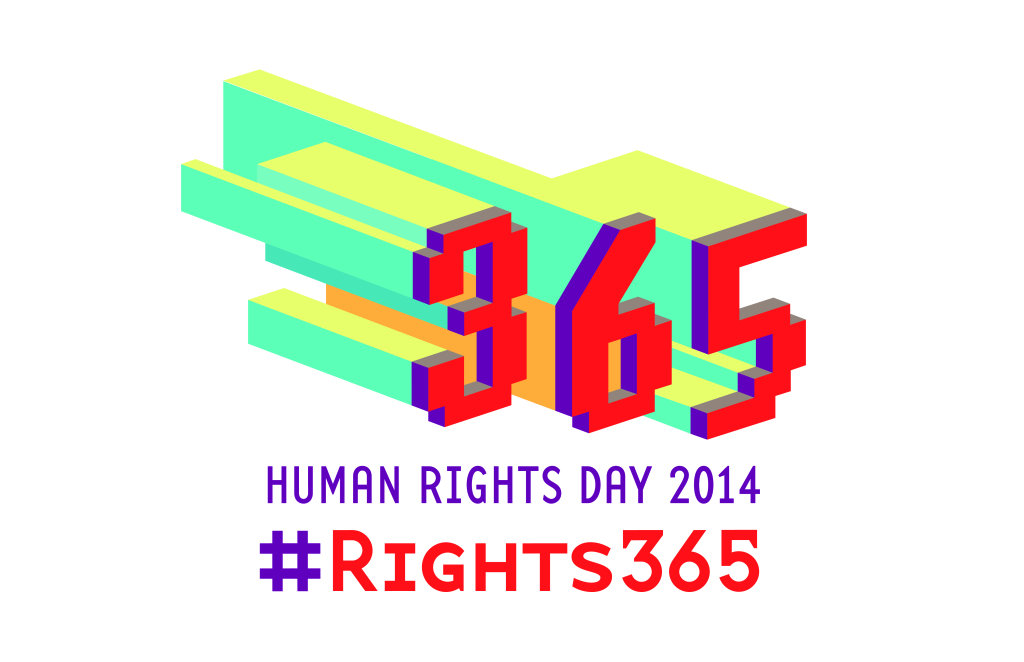 Today, the international community is celebrating Human Rights Day, commemorating the 66th anniversary of the adoption of the Universal Declaration of Human Rights (UDHR) in 1948. The UDHR enumerates fundamental rights and freedoms that are considered to be the foundation of international human rights law, and has since inspired the creation of over 60 human rights instruments that protect human rights worldwide. See OHCHR, Human Rights Day.
Today, the international community is celebrating Human Rights Day, commemorating the 66th anniversary of the adoption of the Universal Declaration of Human Rights (UDHR) in 1948. The UDHR enumerates fundamental rights and freedoms that are considered to be the foundation of international human rights law, and has since inspired the creation of over 60 human rights instruments that protect human rights worldwide. See OHCHR, Human Rights Day.
In 1950, the General Assembly proclaimed December 10th to be Human Rights Day, as a way to draw international attention to the human rights standards set forth in the UDHR. Human Rights Day celebrates the UDHR’s message that “each one of us, everywhere, at all times is entitled to the full range of human rights, that human rights belong equally to each of us and bind us together as a global community with the same ideals and values.” [UN: 2014 Theme]
The theme for this year’s Human Rights Day is “Human Rights 365,” which embraces the notion that human rights should be protected every day of the year. [UN: 2014 Theme] In honor of Human Rights Day, UN High Commissioner for Human Rights, Zeid Ra’ad Al Hussein, announced that the “power of the Universal Declaration is the power of ideas to change the world. It tells us that human rights are essential and indivisible – 365 days a year. Every day is human rights day: a day on which we work to ensure that all people can gain equality, dignity and freedom.” [UN: High Commissioner Statement] The UN Secretary General, Ban Ki-moon, stated, “I call on States to honour their obligation to protect human rights every day of the year. I call on people to hold their governments to account. And I call for special protections for the human rights defenders who courageously serve our collective cause.” [UN: Secretary-General Message]
This year, December 10th also marks the launch of the International Decade for People of African Descent. [UN: Human Rights Day Events] The International Decade’s theme, “People of African descent: recognition, justice and development,” acknowledges that despite State efforts to prohibit discrimination and segregation, “millions of human beings continue to be victims of racism, racial discrimination, xenophobia and related intolerance . . . some of which take violent forms.” See UN General Assembly, Resolution 68/237, Proclamation of the International Decade for People of African Descent, UN Doc. A/RES/68/237, 23 December 2013, para. 1.
Special Events
To commemorate Human Rights Day and the International Decade for People of African Descent, the UN Office of the High Commissioner for Human Rights hosted a public reading of the Universal Declaration of Human Rights on December 9th, from 1:30 to 2:30 p.m., at the Schomburg Center for Research in Black Culture, located at 515 Malcolm X Boulevard, New York, 10037. United Nations officials, diplomats, civil society activists, public figures, and students were all encouraged to attend. The public reading was meant to draw attention to the continuing human rights struggle of African-Americans and people of African descent. [UN: Human Rights Day Events]
The UN Office of the High Commissioner for Human Rights has also initiated a social media campaign in honor of Human Rights Day, encouraging individuals to submit brief videos demonstrating their support for human rights. [OHCHR: Social Media]
The International Justice Resource Center will be hosting its third annual Human Rights Night on this evening in San Francisco. The event is co-sponsored by Human Rights Advocates, Amnesty International, Bay Area International Link (BAIL), and the Public International Law Committee of the International Law Section of the State Bar of California.
Additional Information
For more information on the International Decade for People of African Descent, see the UN General Assembly’s Draft Resolution on the Programme of Activities for the Implementation of the International Decade for People of African Descent, UN Doc. A/69/L.3, 24 September 2014.
To learn more about the work of the various United Nations human rights entities, visit the IJRC Online Resource Hub.
